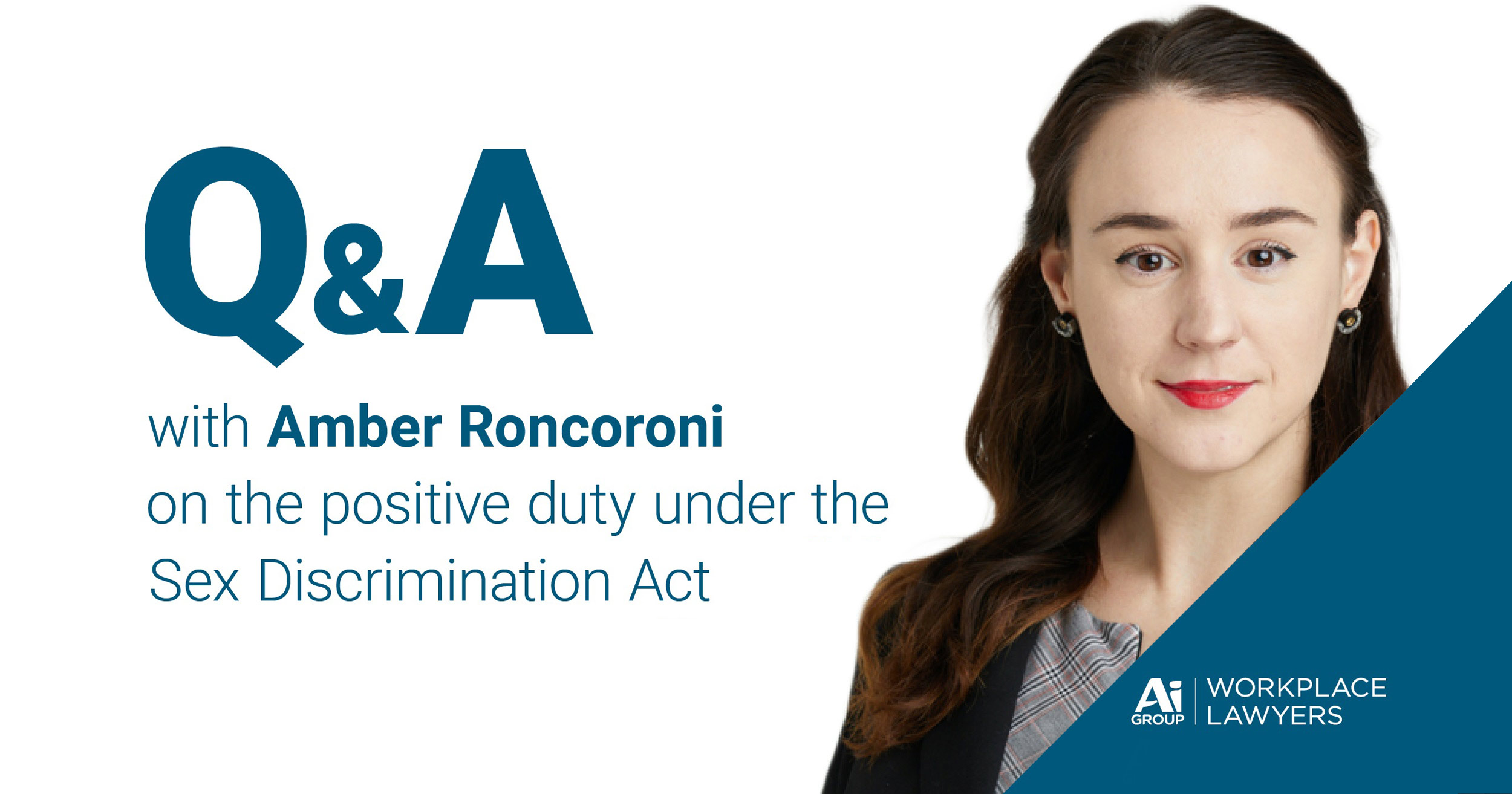What is “the positive duty” and what does it mean for businesses and organisations?
Since December 2022, most businesses and organisations have had a positive duty to prevent workplace sexual harassment, sex-based harassment, sex discrimination, hostile work environments and victimisation.
The duty requires businesses and organisations to take reasonable and proportionate measures to eliminate these types of behaviours, as far as possible.
Non-compliance could result in a compliance notice being issued by the Australian Human Rights Commission (the Commission) which can be enforced through a court order and other forms of action by the Commission.
However, compliance should be a key concern for businesses and organisations.
Creating safe, respectful, inclusive and gender-equal workplaces can have a hugely positive impact on an organisation’s reputation, productivity and workplace culture.
The saying ‘prevention is better than a cure’ can certainly ring true for a business or organisation once the impacts of managing workplace sexual harassment, sex-based harassment, sex discrimination, hostile work environments and victimisation are considered.
How should a business or organisation prepare for compliance with the positive duty?
A good starting point is to understand why safe, respectful, inclusive and gender-equal workplaces are important. It’s not just about complying with the positive duty, it’s also about achieving business or organisational success.
From there, it can help to keep an open mind about the work that may need to be done to ensure compliance and to bring about real positive change.
The Respect@Work: Sexual Harassment National Inquiry Report 2020 indicates many Australian workplaces have much to do.
While some areas of a business or organisation may be doing well, others may not.
These differences may need to be identified and addressed appropriately when considering compliance with the positive duty.
It seems like businesses and organisations are being asked to do more than before the positive duty was introduced. Is this correct?
Previously, businesses and organisations acted in response to the risk of vicarious liability — the risk that something might go wrong for which they might be held liable.
The positive duty may require more, because it requires businesses and organisations to act proactively, to avoid such behaviour from happening in the first place, where possible.
Accordingly, some additional work is expected.
The changes required may be confronting to some, but consider how other laws, such as those in work health and safety, have developed over time.
There has been significant change and adjustment in work health and safety laws over the past 12 years, such as a greater focus on psychosocial hazards in that space.
Assistance can be obtained to navigate the early days.
Where can I obtain further information about the positive duty?
The Respect@Work website has information on how businesses and organisations can provide support to people who may have experienced unlawful workplace behaviour.
Another key source of information is the Australian Human Rights Commission Guidelines for Complying with the Positive Duty under the Sex Discrimination Act 1984 (Cth) (the Guidelines).
The Commission developed the Guidelines to help businesses and organisations understand their responsibilities and the changes that may be required to meet the positive duty.
Ai Group Workplace Lawyers provides assistance and services that can help with compliance.
As a Special Counsel with Ai Group Workplace Lawyers, I have a particular interest in this area. My aim is to assist businesses and organisations to implement actions that resonate deeply and continue to provide value well after engaging us.
In short?
Businesses and organisations are legally required to comply with the positive duty.
While a period of change in the workplace can be expected as steps are implemented to achieve compliance, investing time and other resources into preventative measures can bring significant improvements across an organisation.
